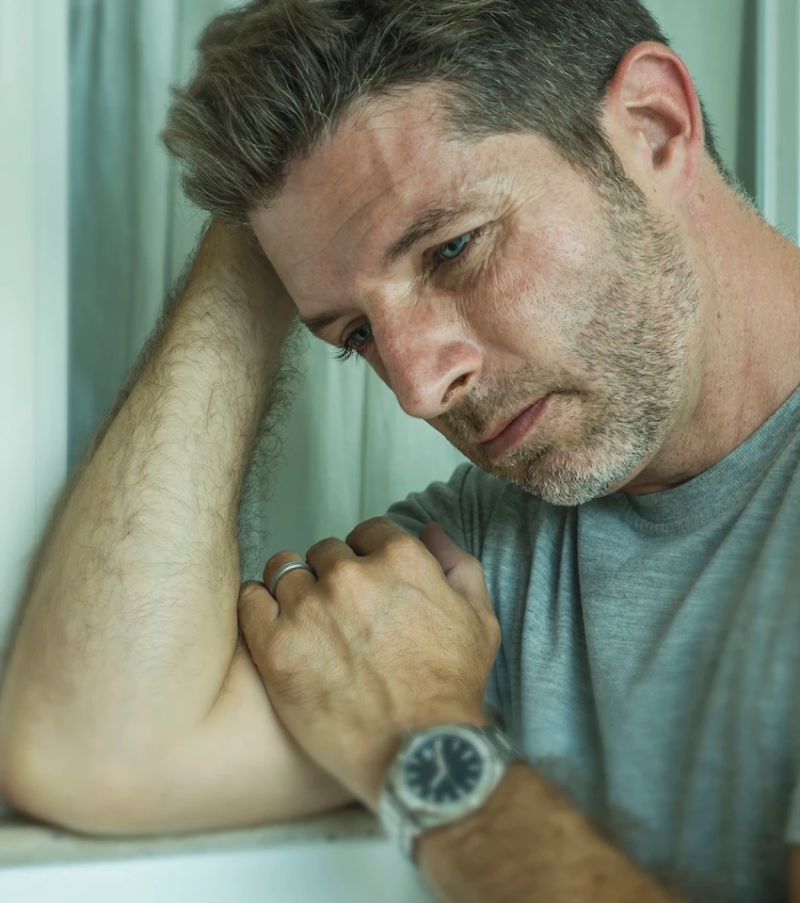There are profound ways men and women perceive, respond to, and communicate in relationships. One complex issue that underscores these differences is how men sometimes retreat when their wives fall ill or face challenging situations.
While this can seem heartless, there are often deep-seated, sometimes unspoken reasons behind this behavior.
Why so many men disappear when their wives get sick or need help, according to a therapist:
1. They fear failing as a protector
For many men, the role of protector feels natural, but when their partner falls ill, they may feel lost if they can’t immediately “fix” the situation. The lack of control can become overwhelming, leading them to retreat.
For a man conditioned to take charge, not being able to solve his partner’s problem can make him feel like he's failing her. Rather than face these painful emotions, some men pull back to avoid the guilt associated with not meeting their expectations as a provider, as suggested by a study in the Sociology of Health & Illness Journal.
2. They have difficulty coping with vulnerability
 TheVisualsYouNeed via Shutterstock
TheVisualsYouNeed via Shutterstock
Illness and hardship highlight vulnerability, a reality that, traditionally, men are often uncomfortable facing. A study in the Journal of Personality and Social Psychology supports that watching someone they love suffer can trigger unresolved feelings of helplessness from the past. Because men are often socialized to “be strong,” they may suppress these feelings rather than openly process them.
Retreating in these situations is often an attempt to protect themselves emotionally, as they may not know how to express their empathy without feeling exposed themselves.
3. They fear emotional dependency
Men and women tend to approach emotional intimacy differently, with men often feeling more comfortable with a degree of independence in relationships. When a partner becomes ill or dependent, it may subconsciously challenge a man's sense of self-reliance. Rather than being selfish, this reaction is often a deeply ingrained survival mechanism.
They might feel guilt or confusion over the level of support required and fear losing themselves in the role of a caretaker, especially if they’ve had limited experience with such intense emotional demands. Pulling away feels like self-preservation rather than abandonment.
4. They're overwhelmed by the weight of responsibility
When their wives face illness or other struggles, many men suddenly feel the weight of managing the household, providing financial support, and taking on more than they’re accustomed to. This “crash course” in responsibility can leave them feeling inadequate, triggering stress and anxiety, as suggested by a study in the South African Journal of Psychology. Unfortunately, the instinct to withdraw becomes an attempt to create emotional space when the weight of expectation feels too heavy to bear.
5. They misunderstand their partner's emotional needs
Men may also feel unequipped to meet their partner’s emotional needs during difficult times. When their wives are sick, men may focus on practical support — getting medicine and handling chores — without realizing their wives may need more emotional presence and connection.
They may genuinely believe they are helping their wives by “giving space” or working behind the scenes, only to realize that their partner feels abandoned and alone. Research in the Journal of Language and Social Psychology helps explain how This difference in approach can create a painful gap, with each partner feeling misunderstood, even when both genuinely care.
Moving forward: Finding a way back together
 fizkes via Shutterstock
fizkes via Shutterstock
Understanding these underlying causes doesn’t excuse men’s retreat from a partner’s side, but it helps us see it from a more compassionate and clearer focus. Women might find it beneficial to express their needs in a way that resonates with their partner, asking not only for practical help but for presence.
For men, recognizing that presence can be the most meaningful form of support is essential. Showing vulnerability, even if it feels unnatural, can be the bridge that draws both partners closer during challenging times.
Ultimately, the goal is connection and understanding. By seeing these responses through a lens of compassion, couples can better navigate the challenges life inevitably brings, turning moments of hardship into opportunities for growth and a deeper bond.
Richard Drobnik, LCSW, DCSW, is the Director at Mars & Venus Counseling Center in Teaneck, NJ.



